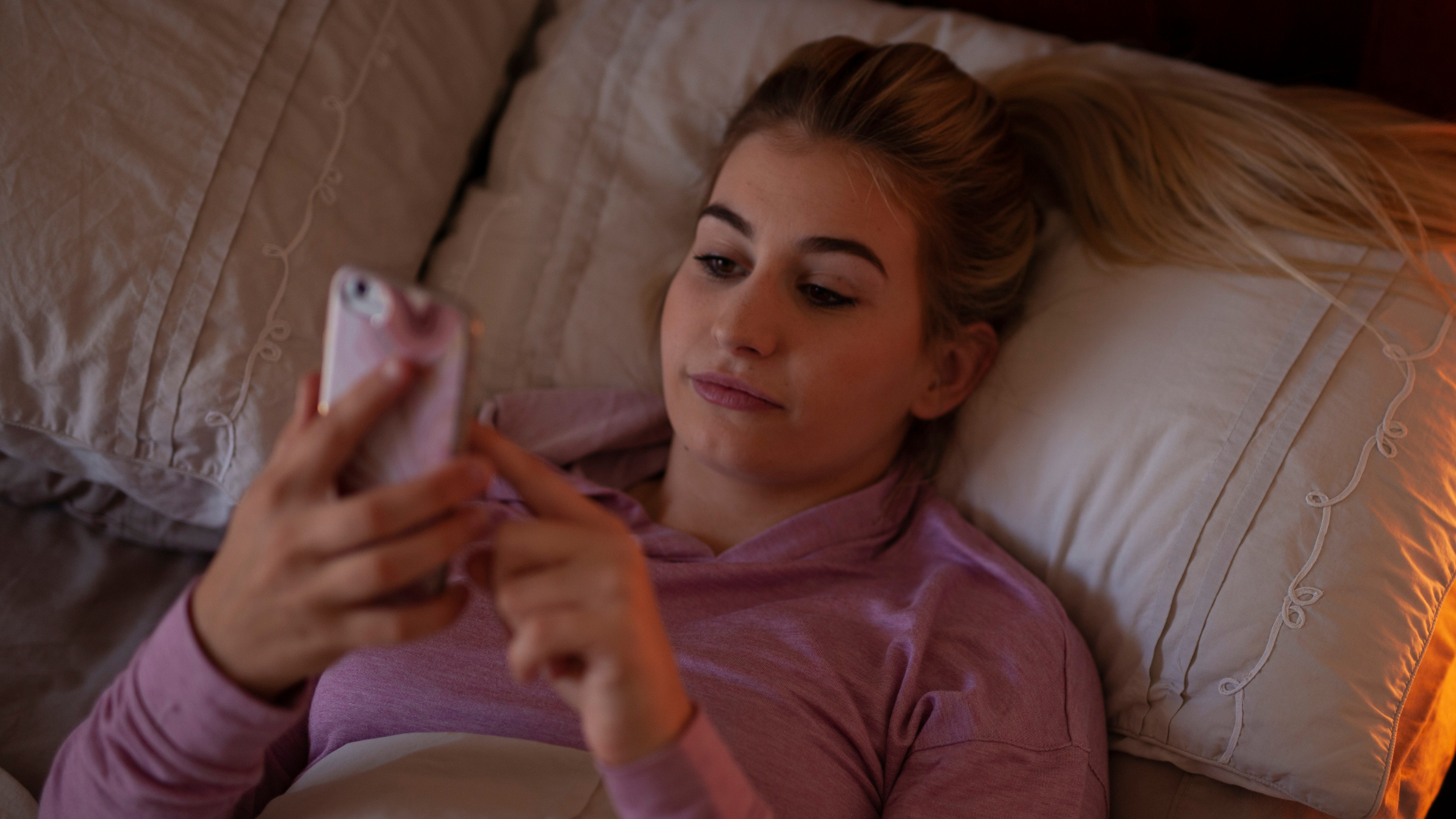
Getting better sleep should be an important goal of yours, although most of the time it barely makes people's radars. This is because we don't think about how much sleep impacts everything that we do in life. It is essential for learning, thinking, concentrating, working out, and functioning at an optimal level.
Therefore, if you understand how important sleep is, it makes sense why getting great sleep is so important. Getting good sleep requires dedication and changing poor sleeping habits that contribute to some of the sleep challenges you may be having. It's also important to recognize what are signs of bad sleep so you know whether or not you need to improve.
Continue reading to learn six habits to give up if you want to improve your sleep!
Checking your phone until bedtime
Looking at your phone can be bad for your sleep because of the exposure to blue light. Blue light is the type of light emitted from electronic screens. This is damaging to your sleep because it inhibits the amount of melatonin that can be released. Melatonin is the sleep hormone that prepares your body for bed. Without it, it can be very tough to get a good night's rest, as it often is released throughout the night until the morning.
Checking your phone not only exposes you to blue light, but a very strong concentration of it. This is different than looking at a tablet or even a TV screen across the bedroom. These little screens can also be anxiety-producing or distracting, leading you down the scrolling rabbit hole that takes away from your sleep time. It's better to give yourself about an hour before bed without looking at your phone. Do other activities like journaling, reading, talking with family, yoga/stretching, whatever it is that helps you feel relaxed.
Using bright lights in the evening
Bright lights have the same effect as melatonin on your sleep. This is because your internal clock, or circadian rhythm, is determined by light. When the retina, a group of cells in the back of your eye are exposed to light, then it stops releasing melatonin. However, when they sense lowlight, then it perceives it as time to go to sleep and begins releasing melatonin. Using bright lights interrupts this process and delays the release of melatonin in the evening. Keep nighttime lights on, or dim them whenever possible. Also, close the curtains, especially if you live in areas with longer days or city lights that beam in.
Taking melatonin supplements
Some individuals have trouble falling asleep and rely on melatonin supplements. Although they can be great adjuncts, when you start relying on them for a good night's rest, then it becomes problematic. Taking melatonin on a regular basis can impact your endogenous, natural release of melatonin. This could negatively impact other hormones in your body that are reliant on melatonin for their production like estrogen and growth hormones. If you are struggling to sleep to the point that you need consistent supplements, then it may be time to see if there are alternative causes to your sleep troubles, such as an underlying sleep disorder or psychological stressor.
Stressing about your sleep troubles
If you constantly have poor nights of sleep, where you wake up in the middle of the evening or it takes you too long to go to sleep, then stressing about sleep could be the reason that you don't get sleep. Even if you have pain in your sleep, this could lead to anxiety about how poor of a night's sleep you're going to get. Therefore, if you want to improve your sleep, it's important to find ways to not stress about your sleep troubles. If you begin to panic because you woke up in the middle of the night and all you can think about is how tired you are going to be the following day, this will only make it harder to go back to sleep. Find some relaxation exercises that you can do before bed and in the middle of the night. It's important to have a positive attitude regarding sleep, if you want a good night's rest.
Eating too much too late
The midnight hunger can be so intense that it wakes you up out of your sleep. Eating too much too late, however, is not the solution. If you consume a large meal within two hours before going to bed, then your digestive system is going to be active trying to move the food from your stomach to your intestines. When you're asleep, however, you are supposed to be relaxed, and all of the systems in your body are supposed to be shut down. This can lead to heartburn, indigestion, flatulence, and maybe even middle of the night bowel movements. If you are hungry right before bed, try for a light, protein-filled snack that will keep you full throughout the night and won't cause a sugar crash.
Sleeping in on the weekends
Sleeping in on the weekends may sound like a dream! But it's actually ruining your sleep. The weekend is just not long enough for you to change your sleeping schedule so drastically over just a couple of days. Sleeping in only makes it harder for you to go back to sleep on your regular schedule come Sunday night. Therefore, it's best to just keep the same sleeping schedule everyday.
https://www.parents.com/baby/sleep/basics/the-ferber-method-explained/

